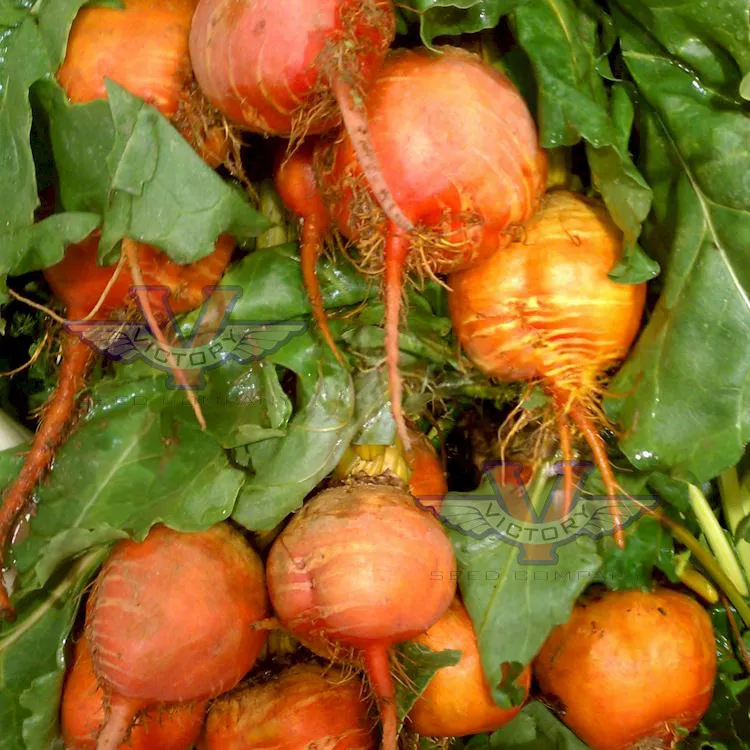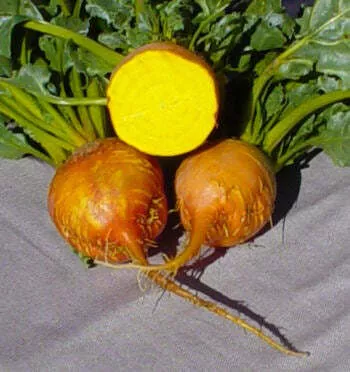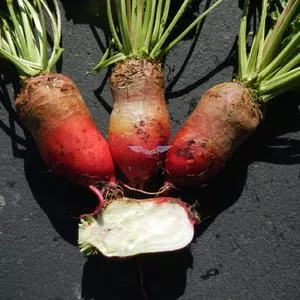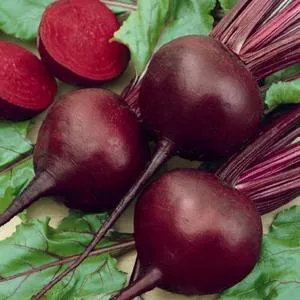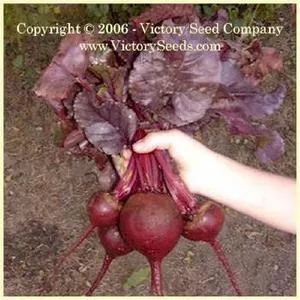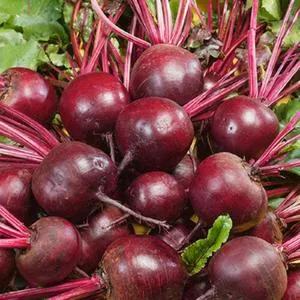

Burpee's Golden Beet
Price: $4.43
SKU: 3040111The history on this variety are a bit sketchy but as we discover documentation, we will include it here. Some seed sellers are incorrectly crediting Burpee with releasing their 'Golden' beet in 1828. This is obviously wrong since W. Atlee Burpee was not even born until 1858. What we do know is that golden colored beets have been around since the 1820s. Burpee's is similar to, and possibly a synonym of 'Golden Detroit'. It was released by the Burpee Seed Company in 1970.[1]
Firm the soil over the seeds and keep moist, making sure that the young roots do not dry out, until seedlings appear. When plants are 1½ to 3-inches tall, thin to three inches apart. The “thinnings” can be eaten as “baby greens.” Water weekly (or as required) in dry weather. Control weeds.
- "Vegetable Cultivar Descriptions for North America," Beet, Lists 1-26 Combined, Edited by Irwin Goldman, Department of Horticulture, University of Wisconsin, Madison, WI.
Customer Reviews:
By James Brandalise on January 18, 2018
I Don't Like Beets! Or I didn't like beets -- childhood memories of eating blood red, strong flavored beets -- but for some reason, I decided to give beets a try again.<br><br>And I now like beets! These are mild and sweet, and have a interesting golden color. The tops were as good as the beets themselves, just eaten raw in a salad. I will keep growing beets now, and these are the ones.
By Craig LeHoullier on June 29, 2011
My wife and I are recent beet converts, and this is one of the best. Though many report lower than normal germination with this variety, we've found that early planting indoors (like tomatoes) and transplanting to individual plug flats results in much higher germination - and using the plugs into the garden leads to absolutely perfect beets!
By Wesley Buie on December 25, 2010
I should of entered these into the local fair this year. I produced beets that had diameters of 6'. With their uncommon color and the size that got I would of won for sure. By far the best tasting beets I've had, any way I have prepared them. I have to use all my willpower to not eat the pickled ones I have. I'm going to grow more next year and highly recommend these for anyone looking for a good producing, unique, beet.

